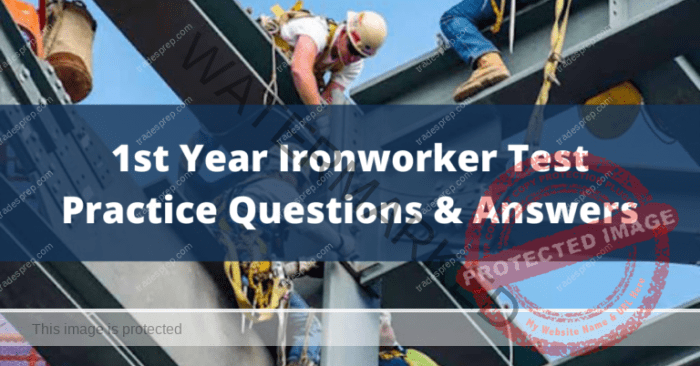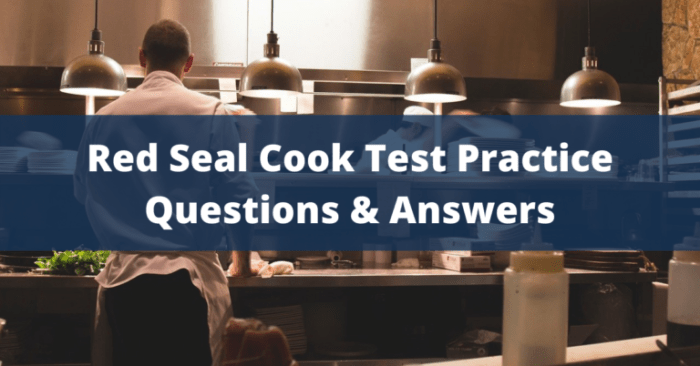Ironworker test questions and answers play a crucial role in assessing the knowledge and skills of individuals seeking employment in the ironworking industry. This guide delves into the types of questions commonly encountered on these tests, the specific areas of expertise evaluated, and effective strategies for test preparation.
Additionally, it provides sample test questions and answers to aid in preparation and enhance understanding.
Understanding the intricacies of ironworker test questions and answers empowers individuals to showcase their proficiency and secure employment opportunities within this dynamic field.
Ironworker Test Questions and Answers

Ironworker tests evaluate the knowledge and skills of individuals seeking employment or advancement in the ironworking industry. These tests typically cover a range of topics relevant to the trade, including safety, structural concepts, and fabrication techniques.
Types of Ironworker Test Questions, Ironworker test questions and answers
Ironworker tests may include various types of questions, such as:
- Multiple Choice:These questions present multiple answer options, from which candidates must select the best response.
- True/False:Candidates determine whether statements are true or false.
- Fill-in-the-Blank:Candidates complete sentences or phrases by providing missing information.
- Essay:Candidates answer open-ended questions that require written responses.
- Performance-Based:These questions involve hands-on demonstrations of skills, such as welding or rigging.
Knowledge and Skills Assessed
Ironworker test questions assess a range of knowledge and skills, including:
- Safety Regulations:Candidates must demonstrate knowledge of industry safety standards and best practices.
- Structural Concepts:Questions cover principles of structural design, including load calculations and material properties.
- Fabrication Techniques:Candidates are tested on welding, cutting, bending, and other fabrication processes.
- Tool and Equipment Usage:Tests assess familiarity with common ironworking tools and equipment.
- Blueprint Reading:Candidates must be able to interpret construction drawings and blueprints.
Test Preparation Strategies
Effective test preparation strategies for ironworker tests include:
- Study Relevant Materials:Review textbooks, study guides, and other resources covering ironworking concepts.
- Practice Sample Questions:Familiarize yourself with the types of questions you may encounter on the test.
- Review Safety Regulations:Ensure a thorough understanding of industry safety standards.
- Practice Blueprint Reading:Improve your ability to interpret construction drawings.
- Manage Test Anxiety:Develop techniques to reduce stress and improve focus during the test.
Sample Test Questions and Answers
| Question | Answer |
|---|---|
| Which of the following is the most important safety precaution when working with electricity? | Lock out/tag out |
| What is the purpose of a gusset plate? | To reinforce a joint between two structural members |
| What type of weld is used to join two pieces of metal together end-to-end? | Butt weld |
| What is the maximum allowable deflection for a beam supporting a load of 10,000 pounds? | 0.25 inches |
| How do you determine the length of a miter cut? | Measure the outside corner and divide by 2 |
Additional Resources for Ironworkers
In addition to test preparation, aspiring ironworkers can benefit from accessing the following resources:
- Training Programs:Apprenticeship programs and vocational schools offer training in ironworking skills.
- Certification Courses:Industry certifications demonstrate proficiency in specific areas of ironworking.
- Industry Organizations:Professional organizations, such as the Iron Workers International Union, provide support and networking opportunities.
These resources can enhance career opportunities by providing access to training, certification, and industry connections.
Frequently Asked Questions
What types of questions are typically found on ironworker tests?
Ironworker tests typically include multiple-choice, true/false, and short answer questions that assess knowledge of safety regulations, blueprint reading, welding techniques, rigging procedures, and structural fabrication.
What key knowledge and skills are assessed by ironworker test questions?
Ironworker test questions evaluate an individual’s understanding of industry-specific terminology, codes and standards, material properties, fabrication processes, and safe work practices.
What are some effective strategies for preparing for ironworker tests?
Effective test preparation strategies include studying industry-related materials, practicing with sample test questions, reviewing blueprints and welding procedures, and seeking guidance from experienced ironworkers or instructors.


